Facebook Scams To Avoid
Important Note: When you buy through our links, we may earn a commission. As an Amazon Associate we earn from qualifying purchases. Content, pricing, offers and availability are subject to change at any time - more info.
Key Takeaways
- It is always best to be on the side of caution and protect yourself from being scammed or worse in the digital age.
- There are many different scams on Facebook and Facebook Marketplace, some are purely digital, and some might hurt you physically.
- Use 2-factor verification to protect your Facebook account and personal data from clever scammers.
- Think before you act, be careful when buying, selling, or meeting up with someone from Facebook.
- Before you click any links or call back anyone via FB Messenger or WhatsApp, it might be better to use the official organization’s website or phone number found via Google/Bing search.
Facebook and the Facebook marketplace can be handy tools if used correctly. However, some use these tools for bad things and scam and hurt people. Knowing what scams there are is key to avoiding them and staying safe. For this reason, I have taken a look at the most common Facebook and Facebook Marketplace scams to help you stay safe.
Advertisement
- Key Takeaways
- What Are Facebook Scams & How Do They Work?
- Facebook Scams
- Facebook Marketplace Scams
- Related Questions
What Are Facebook Scams & How Do They Work?
For as long as Facebook has been publicly available, people have been trying to make illegal money from it by scamming others. With no shortage of scam artists in the digital age, they always find new and innovative ways of getting ahold of you and your information.
Scammers tend to use the promise of an item, the shock factor, or our belief that we need to help our friends against us. Scammers and hackers can access our personal information, accounts, or even money by using these strategies. Unfortunately, losing your money isn’t the worst thing if you aren’t careful.
Below is a set of the most common and worst scams that are active today, and I also include a few tips on how to avoid them. Remember that Facebook will never ask you to give your login details or passwords to someone, whether that is through a call, text message, or an official-seeming email.
Facebook Scams
The scams below are from Facebook, including the post wall and Facebook Messenger.
Advertisement
Malware Links – Is This You!
Malicious links are one of the biggest problems on Facebook and are one of the most commonly used scams used even today. In the past, you may have seen a friend sending you a message like: “Is This You?!” or “You Won’t Believe This!” followed by a link. The truth is that this is a scam, and unfortunately, it’s possible your friend already fell for it.
This scam works through a malicious link attached to the message you receive from a friend or a stranger, for that matter. This link usually redirects the receiver of the message to a website where malware automatically downloads onto your device, which allows the scammer access to your personal information and your Facebook account.
If you click on this link, the chances are that your account will also send the same message to your friends. By doing this, the scammer allows more people to become trapped and gains more information that can be sold to other businesses and used for other means.
The best way to not get scammed like this is to avoid any “clickbait” links sent to you. If you wish to see an example of this scam, click here.
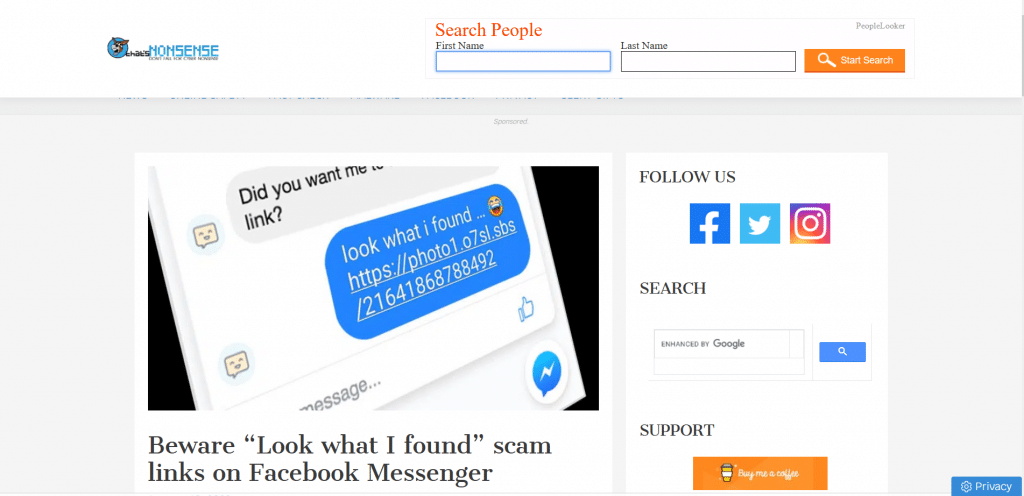
The Loan Scam
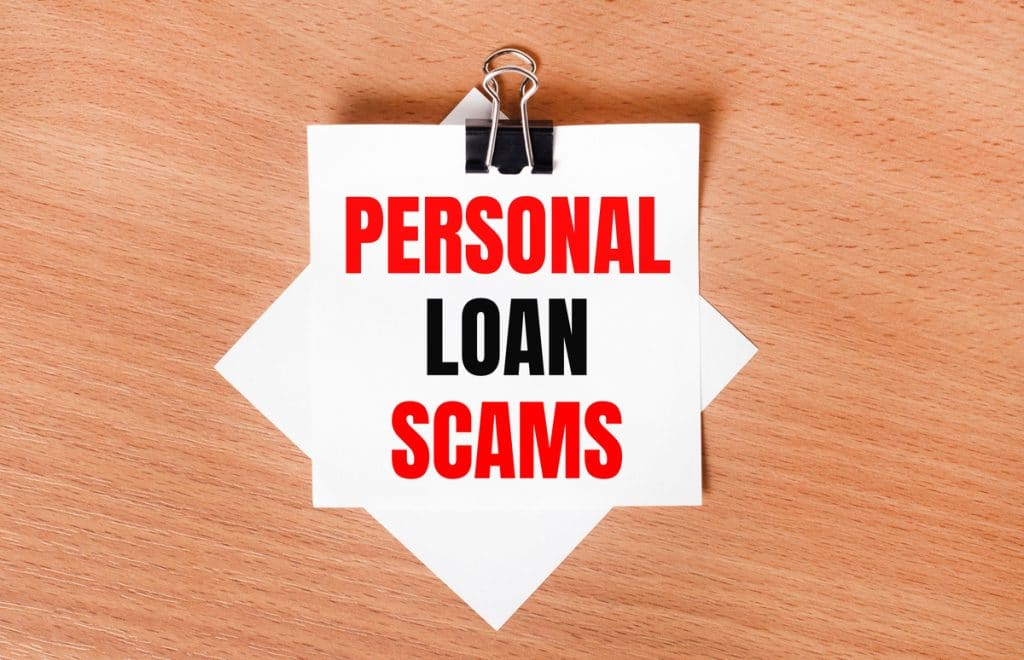
Unfortunately, especially in recent years, loan scams have increased as many have been going through hard times. The loan scam usually appears as an advert-like post made by a supposed business willing to loan you money to get by. Unfortunately, this is usually not the case.
By offering a low-interest loan or claiming that you do not need to pass a credit check, scammers have conned thousands of hard-working and in need citizens into giving them money. This scam functions by offering someone a loan in exchange for a small down payment before the loan is approved.
Advertisement
The truth is that these scams prey on people in severe need or who might not have the best credit records. When you send this person the initial payment before the loan has gone through, they will disappear and leave you with less money than when you started.
The best way to avoid these scams is to avoid looking for loans on Facebook. There are legitimate businesses that can help you if you need them, but you will not find them on your Facebook wall. This article is what Facebook says you should do to avoid this scam.
“Free” Giveaway Contests

Free Giveaway Contests, also known as Just Pay Shipping or You’ve Won Messages, are among the most common scams found on Facebook. This scam works by enticing you to click on a link that steals your Facebook details or by putting you in conversation with someone that is not who they claim.
This scam has many different variants, and you might receive correspondence from a business or celebrity stating that you have won a prize, as this version is quite popular. You might also see a just pay shipping link on your Facebook feed, or have the opportunity to become a part of a contest, that you will almost certainly win immediately.
Clicking on the link provided on many of these messages might direct you to a malicious website where viruses and malware install on your device. You can also have your login details stolen if you have to “sign-in” to enter the contest. However, the most popular variant is the pay-a-little-to-get-a-lot method.
The pay-a-little-to-get-a-lot method generally puts you in contact with someone or takes you to a page where you pay a fee, pay for shipping, or buy a product to qualify for a prize. This kind of promotion is almost always a scam as legitimate businesses do not use the practice of taking money before giving you a prize.
Click here to learn more about these scams and see just one example.
Advertisement
Bail Me Out – Fake Profile

The Bail Me Out scam plays on our loyalty towards our friends and, through that connection, tries to steal our money. This scam can go hand-in-hand with other scams, such as the malicious link scams that take over your profile to get to your friends.
This scam works because the scammer will create a fake profile on Facebook to mimic one of your friends or use the access they have gained through other means to communicate with you. Once they have been able to contact you, and probably many others, they will send you a message to ask for an immediate money transfer to help them somehow.
Sometimes the message will ask you to help with fees for an Uber or gas money, and some will just ask to borrow some money from you. However, if you can and will help your friend in their time of need, you are more likely to giving away your hard-earned money to a scammer.
This transfer usually happens using PayPal or Venmo, which is fast and does not require you to ask for banking details. If you see a communication like this, you first need to look at the profile to determine whether it is your friend, and secondly, send them a message that does not use Facebook to be 100% sure. Here’s an article that shows another example of this scam type.
Facebook Marketplace Scams
Below are more scams specifically focused on the Facebook Marketplace, though some of these scams can also be done through the Facebook post wall or feed and may even take place via Facebook Messenger.
Cash Upfront
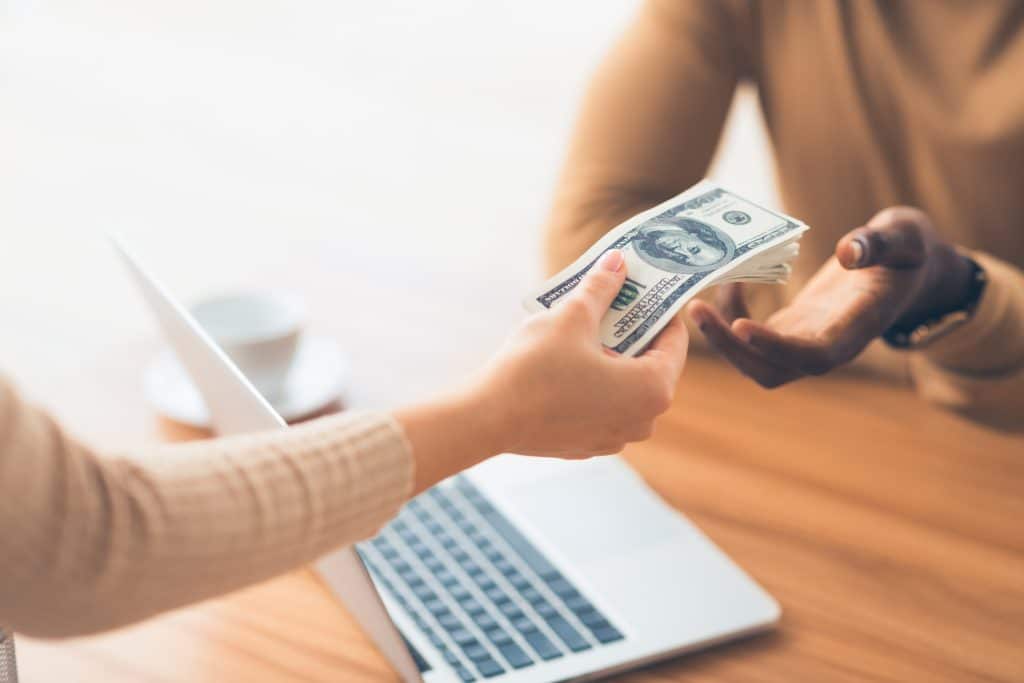
One of the most widespread scams on the Facebook Marketplace is the pay-upfront scam. This scam involves a seller offering an item for purchase over the Facebook Marketplace and then asking you to pay for it before the item gets shipped to your address.
Though this seems like most online purchases which need you to pay before you get the product, this product might never arrive. Apart from the product not coming, you might also walk into sellers selling you false goods, such as a knock-off iPhone, or sending you broken goods, such as a PS5 that does not switch on.
This scam is incredibly successful for the sellers as they can create a new account if they are reported and sell anything they like for as much as possible without ever needing to give you what you paid for. Unfortunately, Facebook Marketplace isn’t the safest place to buy or sell goods as there are some rules, but they aren’t put in place particularly well.
If you want to buy something on the Facebook Marketplace, I recommend doing an in-person transaction rather than making an online payment. This strategy will allow you time to look at the product and will enable you to tell if what you’re buying is worth it. You can look at this article for more information about this scam and others and how to avoid it.
Advertisement
Oops, I Overpaid
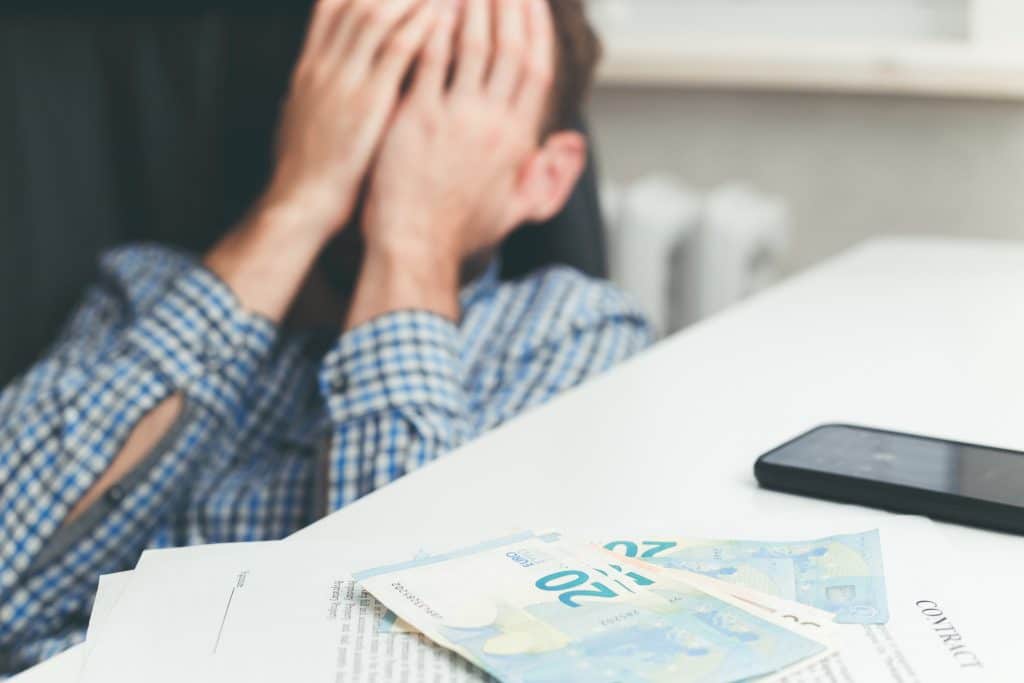
Overpaying can often be an honest mistake. However, it can unfortunately also be a nasty scam. If you are selling something on the Facebook Marketplace, you might have had some people trying to haggle you down or be rude to you. For this reason, it can be nice when someone says they are willing to pay you more for your help or to cover supposed shipping.
However, this has unfortunately resulted in a new trend and type of scam where people offer to pay you more, or just do it without telling you, ask for you to return what they paid extra, and then take your belongings and your money. Usually, these transactions are done through PayPal or other digital means where it is easy to fake or retract a payment.
Once you have given off or shipped the goods you were selling, the buyer will nag you to repay what they claimed to have overpaid. After you have given them both the product and the money they have overpaid, they will retract the initial payment and have your money and your goods.
The simplest way to prevent being taken advantage of is to ensure that you receive payment and transfer that payment to a different account or wait the necessary time for the payment to clear before shipping the product. You can also make cash-only sales if you wish. For more information on this terrible scam, read this article.
Back-alley Meetup (Fake Account)
One of the most sinister and terrible scams is the back-alley meetup scam. This scam is the most dangerous and can result in physical injuries and stolen goods. I have called this the back-alley meetup though it does not need to happen in an actual alley for this scam to occur.
The concept of this scam is that you have a potential buyer on the Facebook Marketplace that wants to meet and exchange money and the product you are selling. However, they are luring you to a place that you do not know or where there are few people as witnesses. Once you arrive at the drop-off site, you might be robbed and beaten.
As nasty as it sounds that a scam like this could be a reality, these times are desperate, and some have resorted to these kinds of scams to stay alive or fund bad habits. It is easy to make a new email address and create a fake Facebook account, which makes it simple to trick an unsuspecting seller into paying dearly for trying to sell their goods.
To avoid this scam, it is best to closely look at the Facebook profile before trying to sell an item. Fake accounts are often new and have little content or information. Another way to avoid this is to meet in a very public area where you will be safe. For more information about this scam, you can read this article.
Related Questions
Since there are many scams that you have to look out for, and since you now know about some of them, you might have some questions. Below are some questions that relate to this topic.
The easiest way to report a scam or scammer on Facebook is to go to their profile page and click on the options below the cover photo. There you will find options to report the page or person. Once you have selected the report option, make sure to choose that the page is a scam and choose the option that most relates to this particular scam.
If Facebook deems the person or page a scam, they will remove them. You can also make a post about this scam to help others.
If the individual who has scammed you is a resident of the same area and is known for scamming people, you can report them to the local authorities. However, if the scammer is not a local, or you are not 100% sure of the scammer’s identity, reporting them to the police might not be an option or might get an innocent person in trouble.
Yes, Facebook can and might send you both text messages and emails. However, you must check the email or message’s address to ensure it is not a scam. Remember, you will not need to provide login information or your password by this means, so be sure to keep an eye out. The only places you need to insert your login details are on Facebook or a connected app.

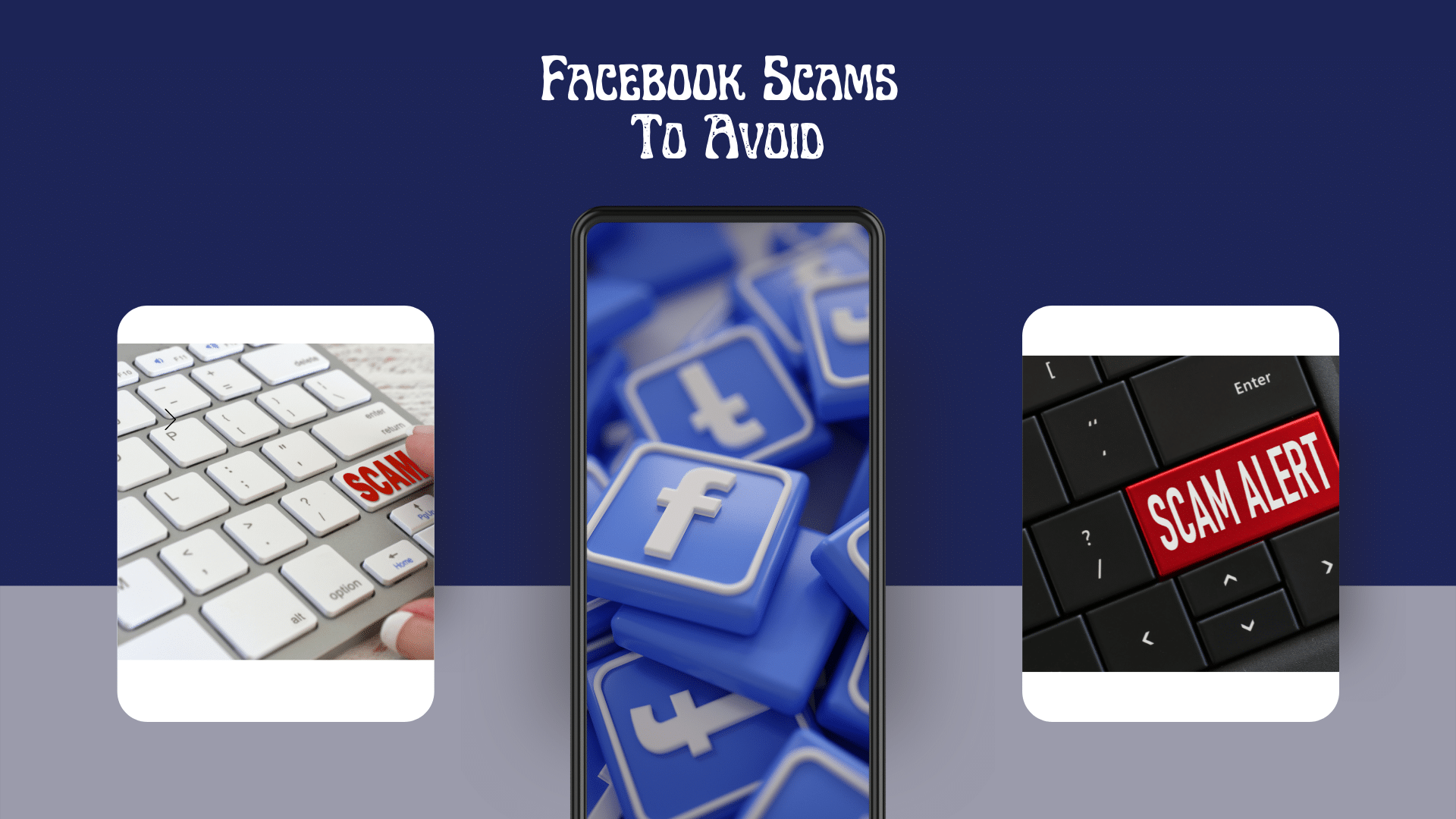
 Please Support Me on Ko-fi
Please Support Me on Ko-fi